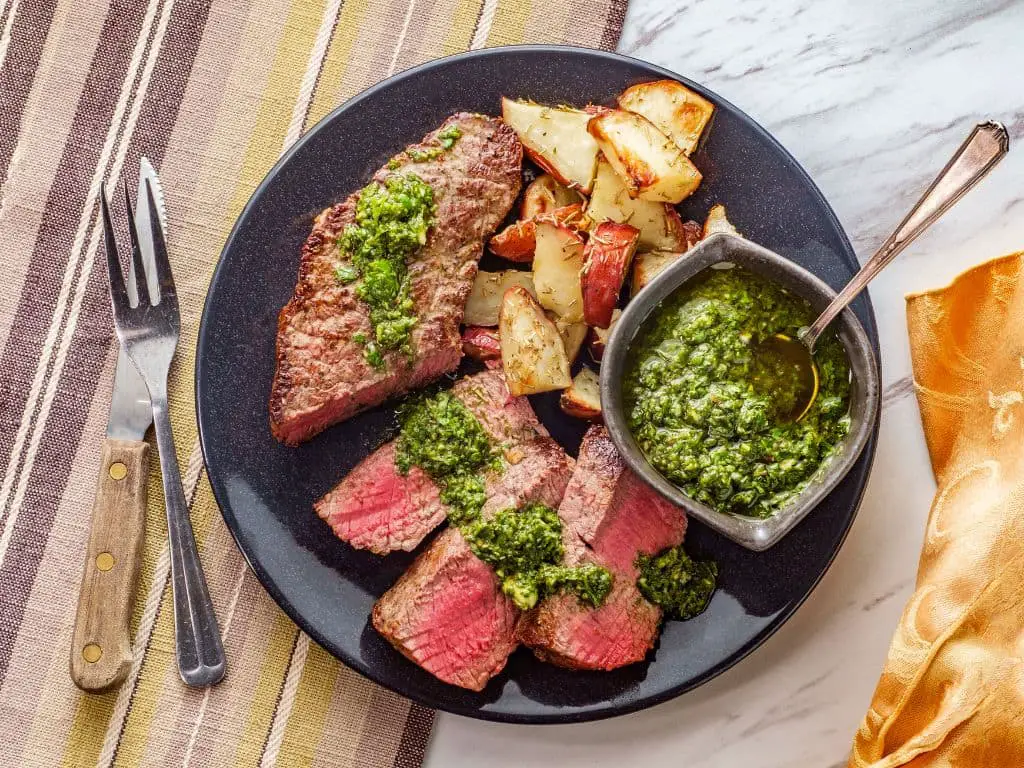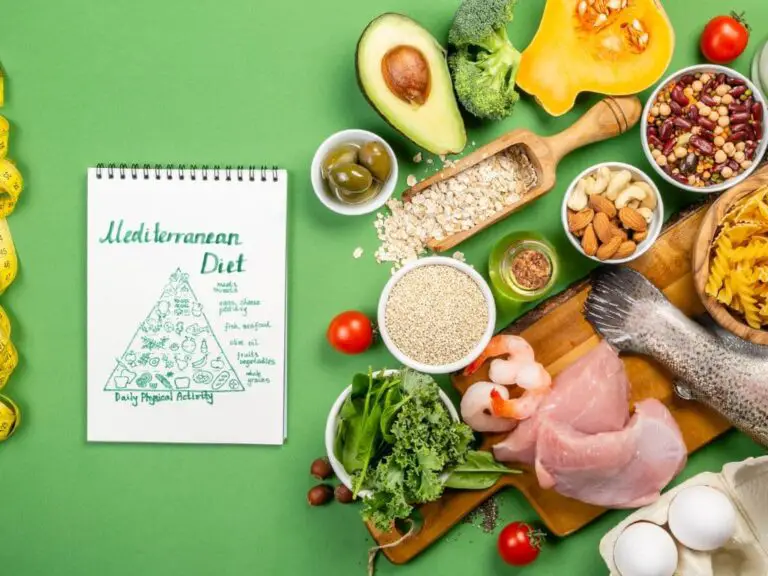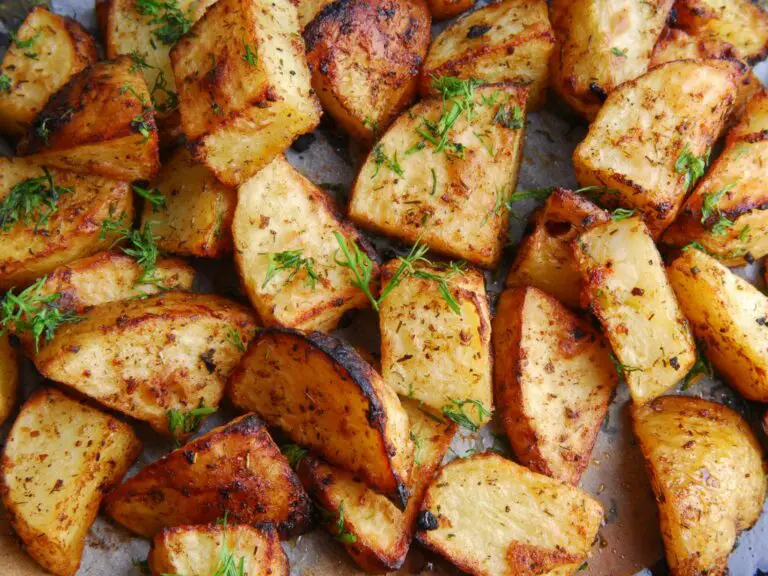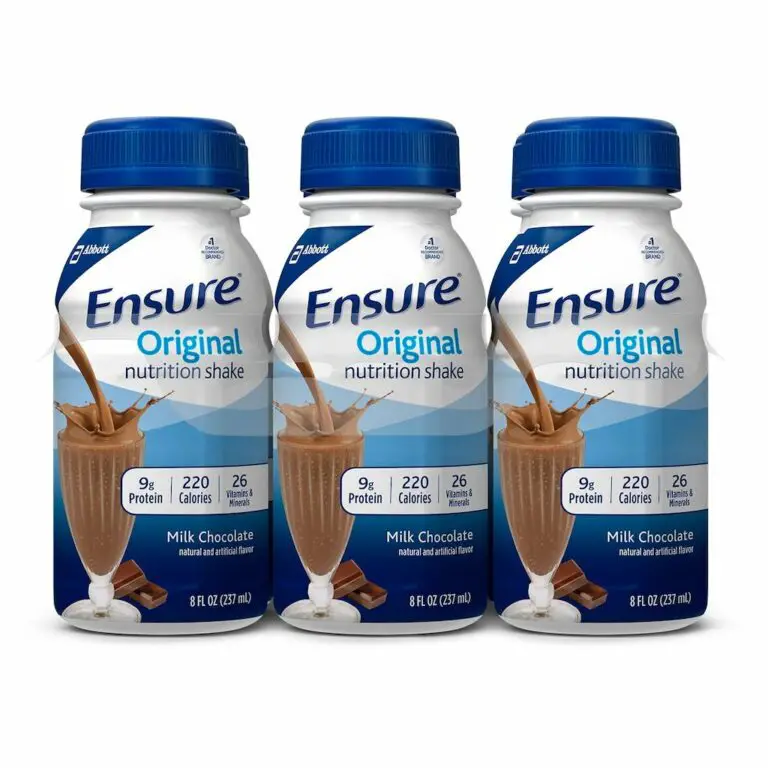Can You Eat Potatoes on the Keto Diet?
The keto diet has become one of the most popular diets for weight loss and health in recent years. This very low-carb, high-fat diet helps promote fat burning and may offer many benefits for health and performance.
However, the keto diet comes with strict rules about which foods you can and can’t eat. Starchy vegetables like potatoes are generally avoided on keto.
Potatoes are typically restricted on the keto diet due to their high carbohydrate content; a medium potato contains approximately 33 grams of digestible net carbs. While small portions may not immediately disrupt ketosis if they fit within a daily carb limit, their high glycemic index and load means they rapidly raise blood sugar levels. Instead, low-carb vegetables like cauliflower, radishes, and jicama are typically recommended as substitutes for potatoes on the keto diet.
This article will take a detailed look at whether you can eat potatoes on the keto diet, examining the carbohydrate, fiber and glycemic index of potatoes, calculating their net carbs, and comparing them to other keto-friendly foods.

What is the Keto Diet?
The keto diet is a very low-carb, high-fat diet that shares similarities with low-carb diets like the Atkins diet.
The basic idea behind the keto diet is to severely restrict carbohydrate intake to put the body into a metabolic state called ketosis.
Why Follow a Keto Diet
Here are some of the major benefits associated with the keto diet:
- Weight loss – The keto diet promotes fat burning, which can lead to significant weight loss. Studies show keto is more effective for weight loss than low-fat diets.
- Appetite control – Ketosis has been shown to have an appetite suppressing effect. Increased fat and protein intake also helps control hunger.
- Health benefits – The keto diet may help control blood sugar, reduce risk factors for heart disease, and improve acne, neurological diseases, and polycystic ovary syndrome.
How Does Ketosis Work?
Ketosis is a natural metabolic state where the body burns fat for fuel.
It happens when carb intake is extremely low, generally below 50 grams per day. This low carb intake helps lower blood sugar and insulin levels.
As carb intake is restricted, the body moves from burning glucose (sugar) to burning fatty acids and producing ketones for energy.
Ketones can provide energy for the body and brain. This metabolic shift towards fat burning is the key goal of the keto diet.
Why Are Potatoes Restricted on Keto?
The keto diet aims to put the body in ketosis by restricting carbohydrates. This means limiting all major carb sources, including:
- Grains
- Fruits
- Starchy vegetables
- Legumes
- Sugars
Potatoes are considered a starchy vegetable and a high-carb food.
One medium (148g) russet potato contains:
- 163 calories
- 37 grams of carbs
- 3.9 grams of fiber
With around 37 grams of carbs per potato, it’s easy to see why they are restricted on keto. Eating just a few potatoes could easily take you over the carb limit for the day.
To stay in ketosis, keto dieters aim to keep net carbs under 50 grams, or even as low as 20-30 grams for some people. It would be nearly impossible to accommodate potatoes and stay within this carb range.
So the high carb content of potatoes is the main reason why they are typically eliminated on the keto diet.
Do Potatoes Kick You Out of Ketosis?
It’s true that eating potatoes in large amounts would easily kick you out of ketosis.
However, including small or moderate portions may not instantly disrupt ketosis, as long as they fit within your daily carb limit.
For example, 1/2 a medium potato (75 grams) contains about 19 grams net carbs. For someone following a 50 gram/day keto diet, this would take up a substantial chunk of their daily carb allowance.
However, some people can remain in ketosis at higher carb intakes, around 50-100 grams per day. In this case, a small potato may be able to fit into their diet in moderation, as long as carbs are accounted for.
Depending on your personal carb tolerance, eating a small potato here and there does not necessarily mean you will be kicked out of ketosis. But they may still hinder progress for many people.
Potato Nutrition Facts
Before deciding if you can make potatoes work on keto, let’s take a look at their nutrition breakdown:
| Nutrient | 1 Medium Potato (148g) | % Daily Value |
|---|---|---|
| Calories | 163 | 8% |
| Fat | 0 g | 0% |
| Sodium | 14 mg | 1% |
| Potassium | 897 mg | 26% |
| Carbs | 37 g | 13% |
| – Fiber | 3.9 g | 14% |
| – Sugar | 2.3 g | |
| Protein | 4.3 g | 9% |
| Vitamin C | 17% | 20% |
| Vitamin B6 | 27% | 29% |
| Iron | 6% | 10% |
The most notable nutrients in potatoes are:
- Carbs – One medium potato contains 37 grams of carbs, making it a high-carb food.
- Fiber – With almost 4 grams of fiber per potato, they can help meet the 25-30 daily grams of fiber recommended on keto.
- Potassium – Potatoes are an excellent source of the essential mineral potassium.
- Vitamin C – Potatoes provide about 20% of the RDI for vitamin C.
- Vitamin B6 – They are high in vitamin B6, providing around 29% of the RDI.
- Antioxidants – Potatoes contain antioxidants including polyphenols, carotenoids, and kukoamines.
So while their carb content dominates their nutritional profile, potatoes do provide some beneficial nutrients.
Glycemic Index of Potatoes
The glycemic index (GI) measures how quickly foods raise blood sugar levels after eating them.
Foods are ranked on a scale of 0 to 100 based on how they compare to pure glucose.
A food that causes a faster rise in blood sugar has a higher GI. Foods with a GI above 70 are considered high-GI foods.
Boiled potatoes have a high GI, around 78-111 depending on the type of potato.
This means potatoes cause a quick rise in blood sugar compared to other carb sources like beans or oats.
However, potatoes are usually eaten in smaller portions compared to other carbs. The glycemic load (GL) accounts for serving sizes, and potatoes have a lower GL of around 16-25 per serving.
Still, both the GI and GL consider potatoes as high-glycemic food. This is another reason they may interfere with blood sugar control and ketosis on keto diets.
Calculating Net Carbs in Potatoes
When deciding if a food fits into your keto diet, it’s important to look at the net carbs rather than total carbs.
Net carbs are calculated by subtracting fiber from total carbs, as fiber does not impact blood sugar levels.
Here is the net carb math for a medium potato:
- Total carbs in 1 medium potato: 37 grams
- Fiber in 1 medium potato: 3.9 grams
- Net carbs in 1 medium potato: 33.1 grams
So after removing fiber, one medium potato provides around 33 grams of net digestible carbs.
For comparison:
- 1/2 a medium potato has ~19 grams of net carbs
- 1 small potato has ~16 grams of net carbs
- 1 cup of chopped potatoes has ~15 grams of net carbs
Even accounting for their high fiber content, potatoes are still very high in net carbs relative to other keto foods.
Best Low-Carb Substitutes for Potatoes on Keto
Rather than trying to fit potatoes into your keto diet, you may want to consider some low-carb vegetable substitutes:
Cauliflower
Cauliflower is the go-to replacement for potatoes on keto, and for good reason. With just 5 grams of net carbs per cup, cauliflower can be mashed, fried, baked, and used to make “potato” salad while keeping carbs low.
Radishes
Radishes have only 3 grams of net carbs per cup. They can be roasted or mashed as a potato substitute and provide a pop of color.
Jicama
Jicama is a root vegetable with a similar texture to potatoes, but contains just 5 grams of net carbs per cup. Try dicing it up for homemade fries.
Turnips
Turnips are starchy root vegetables with 4 grams of net carbs per cup. They can be mashed or roasted for a low-carb potato fix.
Rutabaga
Rutabaga is a cross between cabbage and turnips with 7 grams of net carbs per cup. It can be cubed and roasted or mashed like potatoes.
Celery Root
Also known as celeriac, celery root contains just 4 grams of net carbs per cup. It has a mild flavor and can be prepared similar to potatoes.
Final Thoughts – Potatoes on Keto
Can you eat potatoes on keto? While small portions may be possible, potatoes are generally not keto-friendly.
Here are some key points on whether you can eat potatoes on the keto diet:
- Potatoes are high-carb and conflict with keto’s strict carb restriction. Just one medium potato contains 33 grams of digestible net carbs.
- The high glycemic index and load of potatoes means they rapidly raise blood sugar levels.
- While potato nutrition includes beneficial nutrients like potassium, vitamin C, B6, and fiber, their high carb content makes them hard to fit into keto.
- Lower-carb vegetables like cauliflower, radishes, and jicama make excellent substitutes for potatoes on keto.
Given their high carb and glycemic impact, most keto diet guides advise avoiding potatoes. Small servings eaten occasionally may be possible, but potatoes are generally not keto-friendly. Using low-carb veggie substitutes is an easy way to replicate the texture and flavor of potatoes on keto without knocking yourself out of ketosis.






